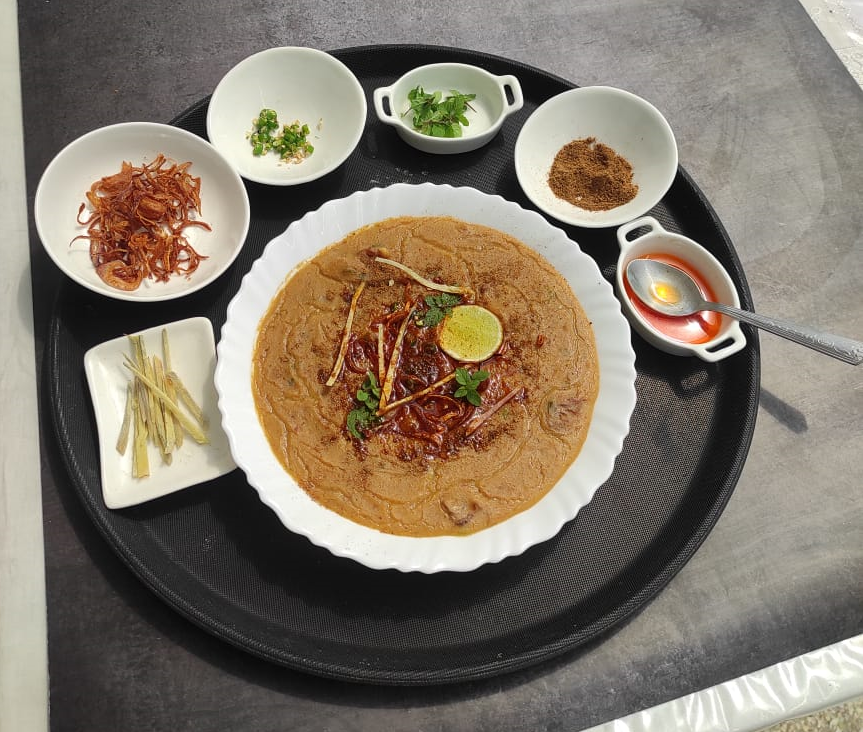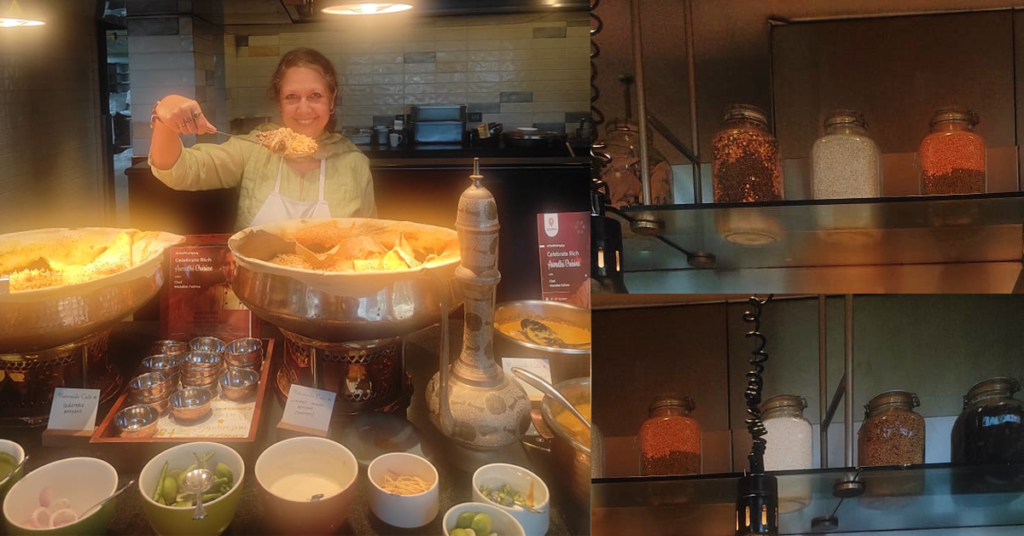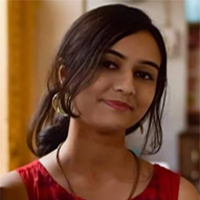WT: Manzilat Fatima is a name that is synonymous to authentic Awadhi dishes. And Eid and the month of Ramadan bring forth a rich essence of flavors and traditions, which echoes your heritage. Could you share with us the culinary practices that define your family’s Ramadan month?
MF: Eid, for us, transcends mere feasting; it’s a profound expression of gratitude and spirituality. It’s a divine gift, a reward from Allah after a month of fasting, a time for celebration and reflection. Ramadan, the month of fasting, holds a special place in our hearts. It’s a time when we align ourselves with the less fortunate, experiencing their hunger and humility.
Growing up, I imbibed the significance of preparing meals with a deeper purpose – inviting others to break their fast, sharing moments of joy and camaraderie. Our family’s approach to Iftar differs from the conventional. While many indulge in lavish dishes like korma and biryani, we embrace simplicity and tradition.
Our Iftar spread is a delightful fusion of flavors and textures. We begin with refreshing fruits and nourishing chana dal, followed by an array of tantalizing snacks – from crispy Telebhaja and pakodis to flavorful bhajas. One can’t miss our unique kachalu – aloo chaat infused with roasted spices, tangy tamarind water, and a hint of sweetness from jaggery. Dahi vada, a timeless favorite, adds a creamy touch to our spread. Shami kabab, with its succulent flavors, finds its place alongside delicate luchi or paratha, ensuring a balanced and fulfilling meal.
We elevate our Iftar with refreshing fruit chaat, zesty with chaat masala and a hint of lemon. A colorful fruit salad complements the feast, offering a burst of freshness. And who can resist the allure of kabli matar or Ghoogni, a quintessential Lucknowi delicacy?
Each dish is not just a culinary creation but a reflection of our heritage and values – simplicity, generosity, and community.
WT: You are very famous, and people who love authentic dishes would definitely visit Manzilat. What are the main unique selling points (USPs) or the special dishes that you prepare during Ramzan time?
MF: When it comes to Ramzan, one dish that draws everyone in is my Haleem. I remember starting my Haleem journey five years ago during Ramzan in 2018. Setting up a small stall on the ground floor, I wanted to share this beloved Ramzan staple with everyone. Haleem holds a special place in people’s hearts during this time.

WT: It sounds like your Haleem has become quite a sensation. How did your journey with this dish unfold?
MF: Indeed, after the first year’s success with Haleem, the anticipation grew. People were eager to know what I would bring next. So, I ventured into kebabs and eventually biryani after Eid. It’s fascinating how each dish holds its own significance during this festive season. Interestingly, Haleem isn’t a traditional favorite in Lucknow; instead, khichda takes the spotlight during Ramzan. Having roots in both Lucknow and Calcutta, I have witnessed the subtle differences firsthand. While both dishes share similar ingredients and cooking methods, the difference of wheat and joar or millet sets the two dishes apart for Lucknow connoisseurs. It’s these nuances that make our culinary journeys so rich and diverse.
WT: You have expertise in both Lucknowi and Kolkata Biryani. Many believe the only difference lies in the addition of potatoes. What do you think sets them apart at their core?
MF: Oh, there’s much more to it than just potatoes! That’s why I offer both varieties on my menu—to showcase the distinct flavors of Lucknowi and Kolkata biryani. It’s amusing how preferences vary; some insist on the traditional Lucknowi style without potatoes, while others can’t imagine biryani without them.
And beyond the potato debate, there’s a stark contrast in spices and cooking techniques. In Lucknowi biryani, the mutton is cooked with a bit of stock, creating a rich base for the dish. The rice is then layered and cooked atop this flavorful foundation. In contrast, Kolkata biryani follows a different process. We prepare the korma separately, layering it with meat, potatoes, and rice. It’s these subtle variations that make each biryani experience unique and cherished.
Also read: Empowering Wellness: Rashmi Biyani’s Inspiring Journey and Vision
WT: Which Eid dish from your legacy holds a special place in your heart?
MF: Being Shia Muslims with roots tracing back to Persia, Iran, our Eid traditions are deeply rooted in our heritage. On Eid day, we indulge in a variety of sevai (vermicelli) dishes—Kewam ki semai, doodh wali semai, and the classic sugar semai.
Also,after a month of fasting, indulging in heavy meals on Eid day can be daunting. That’s why we have a special dish called Khadi Masoor ki Dal, where Chilka Wala Masoor Dal is cooked with meat. This comforting dish is typically enjoyed with Shami Kebab, Paratha, and rice. We opt for lighter fare during the daytime, reserving the grandeur of biryani for later festivities. Of course, our Eid menu includes a variety of other dishes like korma and biryani, along with three or four types of vermicelli to cater to everyone’s tastes.
WT: How you celebrate Eid at your outlet?
MF: We choose to close our outlet on Eid and the day after. In our first two years, we remained open, but we quickly realized the importance of these days for family bonding. Eid is a time for loved ones to come together, and we want to honor that tradition. By closing our doors for these two days, we ensure that both our staff and customers have the opportunity to celebrate with their families and loved ones.
WT: How can someone book their seats or order from your outlet?
MF: Just search for “Manzilat” on Google, and you’ll find our WhatsApp number: 9432913204. Once you’ve located us, just send us a message with your requirements, details, and the number of people you’re catering for. We make it a priority to respond promptly to all messages we receive, ensuring a seamless and convenient booking or ordering process for our valued customers.





One Response